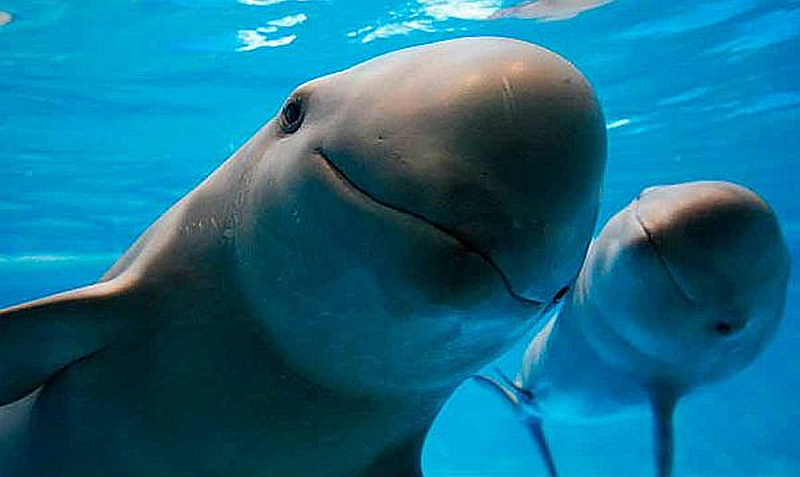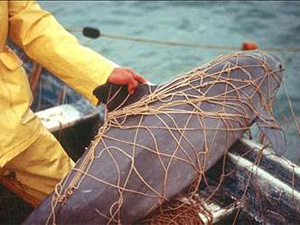
Baja California – Twelve scientists from Mexico, the United States and Canada began a scientific expedition on Wednesday in an effort to locate the few remaining vaquita marina, the world’s most endangered marine mammal, in the Gulf of California.
According to Mexico’s Minister of Environment and Natural Resources, María Luisa Albores González, the 2023 Vaquita Observation Cruise, a joint operation with the Sea Shepherd Conservation Society, will use binoculars, sighting devices and acoustic monitors to try to pinpoint the location of the imperiled porpoises.
The vaquita (Spanish for “little cow”) is the world’s smallest cetacean; a full-grown female can measure just five feet and weigh only 75 pounds. Thousands of vaquitas once plowed the Sea of Cortez, also known as the Gulf of California, which is bordered on the east by the Mexican mainland and on the west by the Baja California peninsula.

Populations of the vaquita have dropped sharply in recent years because they get caught in the gillnets that are used to catch another critically endangered sea creature, the totoaba fish, whose swim bladder is considered a delicacy in China and can fetch thousands of dollars per pound.
Sea Shepherd has been working in the Gulf alongside the Mexican navy to discourage illegal fishing in the one area where vaquitas were last seen. The area is known as the “zero tolerance” zone, and fishing is supposedly not allowed there. However, Mexico has been unable to completely stop illegal fishing boats.
In April, both entities announced that they had successfully removed all gillnets from the vaquita protected area, although totoaba fishermen are still reportedly entering the region to fish.
Pritam Singh, Sea Shepherd’s chairman, said that a combination of patrols and the Mexican navy’s sinking of concrete blocks with hooks to snare illegal nets has reduced the number of hours that fishing boats spend in the restricted zone by 79% in 2022, compared with the previous year.
Singh said that “the last 18 months have been incredibly impactful and encouraging,” while noting that “the road ahead for saving this species is long.”
The expedition will travel on two ships: the Sea Horse, a Sea Shepherd ship, and the Sirena de Mar, a Mexican ship, to try to locate the as few as eight vaquitas that are believed to still exist.
The vaquita cannot be captured, kept or bred in captivity as it is very sensitive to stress and changes in its environment. Previous efforts to capture vaquitas for conservation purposes have led to health complications and even death of the specimens.
The results of the expedition are expected to be shared with the public in about four weeks.





